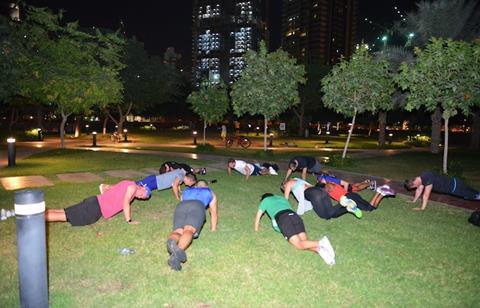
EXCLUSIVE: International consultancy and construction organisation Mace has held a global wellbeing week for its 5,300 employees in 40 operating locations across 12 countries.
The global wellbeing week, the organisation’s first, is running this week from Monday 13 November to Friday 17 November, except in the United Arab Emirates where the wellbeing week ran from Sunday 12 November to Thursday 16 November.
Mace designed its global wellbeing week around the New Economic Foundation’s (NEF) five ways to wellbeing model, which includes connect, keep learning, be active, give, and take notice. Mace’s 73 employee volunteer wellbeing ambassadors, who are based across 12 different countries, led local activities and events with the full support and engagement of the organisation's senior management team, health and safety team, and the marketing team.
So far, 206 wellbeing week events have been recorded across 40 of the organisation’s global operating sites, although it is still collecting data on local activities. These have included walking meetings, exercise classes, blood pressure tests, body fat analysis, know your numbers testing, Spanish lessons, art classes, and tea-and-talk sessions, which discussed mental health using Mace’s World Mental Health Day video, ‘Starting the conversation’, as a basis.
Charity partners, such as the Mace Foundation, Mind, the Youth Hostel Association and Movember, also attended Mace’s head office to deliver presentations. Employees have also opted to use their annual volunteer day as part of wellbeing week, to support the ‘give’ aspect of the NEF’s wellbeing model.
The global wellbeing week was communicated to staff using countdown emails, messages on the staff intranet, and posters around its different office locations. Promotions for the wellbeing week have been ongoing since World Mental Health Day on 10 October.
Mace has also used its global wellbeing week to launch its wellbeing-focused staff survey, which will be running for three weeks following the conclusion of wellbeing week activities. The data collected from the staff wellbeing survey will be used to inform Mace’s health and wellbeing strategy for the next year, and help the organisation implement relevant interventions and support for its staff. It plans to repeat both the global wellbeing week and wellbeing survey will be repeated next November in order to track the health and wellbeing strategy’s success.
Although Mace is still i the process of creating its health and wellbeing strategy for next year, Mace already has mental health training and awareness programmes in place for 2018.
Judith Grant, associate director, health and wellbeing at Mace, said: “[The global wellbeing week] is to launch our wellbeing survey, which is all about us understanding the health and wellbeing of the business so we can build a meaningful strategy to address our health risks [and] look at ways we can promote wellbeing across the organisation to support our people.
"It’s about raising awareness, but it’s also around employee engagement and as a launch pad for our strategy. People won’t just see this for one week, we’re going to do it again next year, but there will be lots of activities inbetween.
“A lot of wellbeing initiatives can be nice to do, but it’s important that they’re meaningful, that they are measured and that they meet the needs of the business, so the reason we’re doing the survey is so we can really tailor the interventions and the programmes that we put in place. We are certainly launching in the new year our mental health training and awareness programmes, but what else we do will very much depend on what our [employees] across the world have told us.
“A lot of businesses […] use sickness absence data to build a wellbeing strategy, but actually it’s a lagging measure that maybe tells [employers] about the health of 3%, 4%, 5% of people, but doesn’t necessarily tell [organisations] about the health of the other 95%. The survey that we’re doing is looking at all sorts of measures around engagement, resilience, psychological wellbeing [and] physical health. That will give us some really meaningful information that we can build on, and then we [will do] it again next year to measure the success.”











